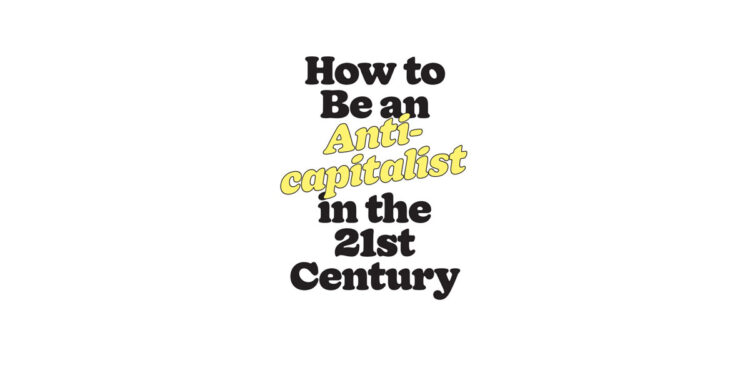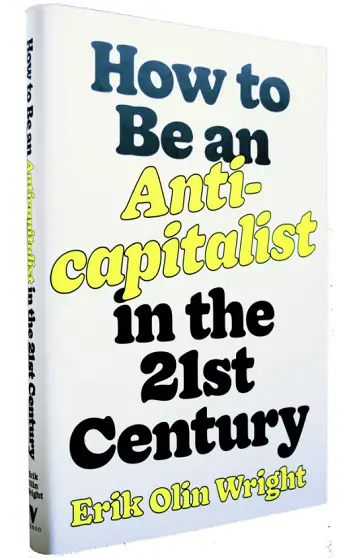How to Be an Anti-Capitalist in the 21st Century by Erik Olin Wright – Review

By James Robinson
New challenges call for new ways of thinking. Coronavirus has sent the government careering, with coughs and splutters, from crisis to crisis, frequently exposing long cherished principle as insufficient in the face of genuine emergency. Once unthinkable policies, from furlough to free school lunches, have suddenly proved to be the most pragmatic. The aftermath of the pandemic is likely to see a major public appetite for an improved way of organising ourselves.
This being the case, Verso books may well be the publisher of the moment. One of the leading imprints for progressive literature, their catalogue of works by some of the world’s best respected radical thinkers might just hold the key as to how we can create a better future in the aftermath of Covid. Anybody looking for the ideal Christmas present for a radically minded friend or relative could do a lot worse than picking up one of their stylishly designed and thought-provoking books.
One title that stands out is How to Be an Anti-Capitalist in the 21st Century by the late philosopher Erik Olin Wright. Despite its sensational title, this is a measured piece of work that details some of the small steps that could be made to create a new, arguably fairer society.
 Central to his thesis is a concept that measures to soften the edges of the neoliberal orthodoxy (‘eroding’ capitalism, as he calls it) will have a more achievable and longer-lasting outcome than the sort of revolutionary politics that tend to be favoured by certain elements of the left and most of the Twittersphere.
Central to his thesis is a concept that measures to soften the edges of the neoliberal orthodoxy (‘eroding’ capitalism, as he calls it) will have a more achievable and longer-lasting outcome than the sort of revolutionary politics that tend to be favoured by certain elements of the left and most of the Twittersphere.
“Abundant with theory”
This is a contentious topic amongst the progressively minded, but Wright makes his pitch clearly and systemically. His thesis is divided into six reasonably short chapters in which he makes the case for a specific brand anti-capitalism – what he terms democratic market socialism – before providing his view on the most beneficial ways to make this happen.
These all tend to be ‘bigger picture’ solutions that will rely on a stronger collective sense of the greater good than is generally reflected in the public. A world of ‘democratically empowered decentralization’ and ‘new institutions for democratic representation’ is easy to write, hard to read and almost impossible to enact, but Wright makes a persuasive case for them.
Wright was battling leukaemia as he wrote this slim volume. In a brief preface, he described his hopes that it would eventually comprise two volumes, the first a general treatise on the state of Capitalism and the ways in which its negative effects might be mitigated, and the second a more in-depth and academic analysis of his proposals, with requisite footnotes and further reading. Unfortunately, he died before he was able to complete this second volume, so How to Be an Anti-Capitalist survives mainly as a primer on progressive politics and the case for social-democratic policies.
Nevertheless, it’s still a dense piece of work, abundant with theory that, at first, can be a little intimidating. General readers need to be prepared for sentences along the lines of ‘identities, interests and values do not spontaneously precipitate the formation of collective actors, let alone politically organized collective actors capable of contributing to emancipatory social transformation.’
This is an academic piece of work that demands a reasonably high level of engagement. However, for readers who might be developing an interest in progressive causes, it is well worth persevering with.
‘How to Be an Anti-Capitalist in the 21st Century’ by Erik Olin Wright is published by Verso, £12.99 hardback









